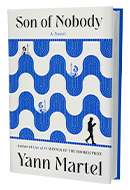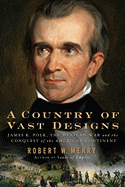The American Booksellers Association Board of Directors sent a letter to the Department of Justice requesting that it investigate practices by Amazon.com, Wal-Mart and Target "that it believes constitute illegal predatory pricing that is damaging to the book industry and harmful to consumers," according to Bookselling This Week.
In the letter, the ABA board observed: "We would find these practices questionable were they taking place in the market for widgets. That they are taking place in the market for books is catastrophic. If left unchecked, these predatory pricing policies will devastate not only the book industry, but our collective ability to maintain a society where the widest range of ideas are always made available to the public, and will allow the few remaining mega booksellers to raise prices to consumers unchecked.
---
More indie bookseller reaction to the book pricing war: The Dallas Morning News interviewed Kyle Hall, director of marketing and events at Legacy Books, Plano, Tex.
"We've been open almost a year now and our business has never been primarily driven by the standard bestseller lists," Hall observed. "I think there are two reasons for that: 1) People shop independent bookstores for things beyond the bestsellers anyway--and I can't stress enough how pleased we are that this was true of Legacy Books from opening day, and 2) by the time we opened last year, the manner in which the Targets and the Costcos and the Wal-Marts and supermarkets, etc., skim bestseller sales from other booksellers was well established, so that now the bookstores that have lasted are able to sit on the sidelines and watch the big box stores and online retailers sell at a loss and hope to make it up by selling you shampoo, cereal and pet food from their other departments. They will lose money on every copy of those books; they are selling below wholesale, as you know."
Hayley Wright, owner of Between the Covers, Bend, Ore., told the Bulletin that "people come to her store not for the price of the book, but for the kind of book. Sure, she might have a copy of Dan Brown’s newest novel, but it's very possible that it’s cheaper at Costco or Wal-Mart. However, a customer probably won’t find anything by Jack Kerouac or Tom Robbins on the shelves of a big-box store, Wright said. And, at her store, people will find someone who knows something about literature."
"We add to people's experience," she said. "We can make recommendations to people who read and are looking for a good book."
---
This Sunday, October 25, the Independent Booksellers of New York
City and the Emerging Leaders Project of the ABA will host "Hunting for
the Future of Bookselling," from 4-6 p.m. at the Mysterious Bookshop,
58 Warren Street, New York, N.Y.
Author and bookseller Vincent McCaffrey will kick things off with a reading from his first novel, Hound
(Small Beer Press), a mystery starring a bookseller who gets caught up
in the drama after an ex is killed, and set against the backdrop of his
own history with Boston and its used bookstores (including his own).
McCaffrey
will then join three Brooklyn booksellers on a panel about the past,
present, and future of bookselling. Panelists include Jessica Stockton
Bagnulo, co-owner of brand-new Greenlight Bookstore in Fort Greene;
Christine Onorati, owner of WORD in Greenpoint, Brooklyn; and Henry
Zook, co-owner of Bookcourt in Cobble Hill.
To reserve your seat, call (212)587-1011, e-mail info@mysteriousbookshop.com with the subject line "HOUND" or RSVP at this Facebook link.
---
Is Australian kitchen saleswoman Rebecca James the next J.K. Rowling? The Wall Street Journal asked this question now that "the 39-year-old mother of four has discovered that her debut novel Beautiful Malice, a gritty psychological thriller for teenagers upward, isn't merely to be published, but has become a publishing phenomenon that is sparking an aggressive bidding war world-wide."
C&W literary agency brought the slush-pile find to the Frankfurt Book Fair last week and "was struggling to keep up with offers from publishers that had received the manuscript. Even though the C&W agents have yet to meet Ms. James, the novel is set to be translated into at least 30 languages, and they envisage a series of similar 'sexy, psychological thrillers' from the author. . . . Bantam USA was so determined to acquire the rights, it bid up to $600,000 for two books (the second is a thriller titled Cooper Bartholomew Is Dead)," according to the Journal.
---
Bookselling this Week explored the new space into which Wellington Square Bookshop, Exton, Pa., expanded in August when it "moved two doors down to a 3,700-square-foot storefront, where sales have doubled monthly and the space is nearly filled to capacity again."
"Our clientele has expanded each month," said owner Sam Hankin. "We host numerous book clubs. We have weekly children's reading hours, and we have an open microphone night, at which time students and adults can read their own material, or that of others. We also have local author signings, and are expecting to have more prominent authors schedule events in the near future. . . . We intend to expand our retail collection with more exotic and eclectic items. We have been working with local artists to obtain paintings and other artwork on consignment, and in that we have already basically filled the expanded space, our visionary plans include warehouse space where excess inventory will be housed."
---
100 Scope Notes showcased "Things Librarians Fancy," and asked, "Ever wanted to delve into the unexplored world of librarian culture? If you just said 'no,' I can't hear you. If you just said 'yes,' then today, my friend, is your lucky day." (Via the Boston Phoenix.)











 Writer and book critic John Freeman has written for many publications, including the New York Times Book Review, the Los Angeles Times, People and the Wall Street Journal. Freeman won the 2007 James Patterson Page Turner Award and was recently named editor of Granta. He lives in New York City and London. His first book, The Tyranny of E-mail, was just published by Scribner.
Writer and book critic John Freeman has written for many publications, including the New York Times Book Review, the Los Angeles Times, People and the Wall Street Journal. Freeman won the 2007 James Patterson Page Turner Award and was recently named editor of Granta. He lives in New York City and London. His first book, The Tyranny of E-mail, was just published by Scribner. In 1844, Polk went with the Tennessee delegation to the Democratic convention planning to sew up the vice presidential slot on the Van Buren ticket. Merry captures in vivid detail the tumult and politicking that ended with Polk being nominated as the Democratic candidate for the Presidency--the outcome of a party's convention was clearly not a foregone conclusion as in our day. Boulevard wits mockingly asked each other, "Who is James K. Polk?" After a contentious campaign and very close election, they would come to know him as the youngest man yet to assume the presidency (he was 49 upon inauguration) and one who declared in his campaign that he would be a one-term president.
In 1844, Polk went with the Tennessee delegation to the Democratic convention planning to sew up the vice presidential slot on the Van Buren ticket. Merry captures in vivid detail the tumult and politicking that ended with Polk being nominated as the Democratic candidate for the Presidency--the outcome of a party's convention was clearly not a foregone conclusion as in our day. Boulevard wits mockingly asked each other, "Who is James K. Polk?" After a contentious campaign and very close election, they would come to know him as the youngest man yet to assume the presidency (he was 49 upon inauguration) and one who declared in his campaign that he would be a one-term president.